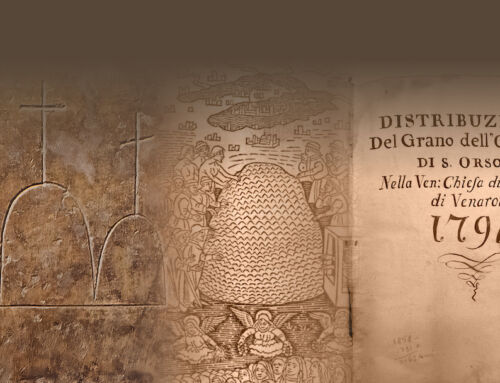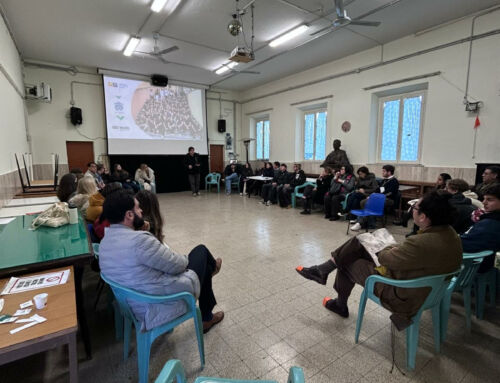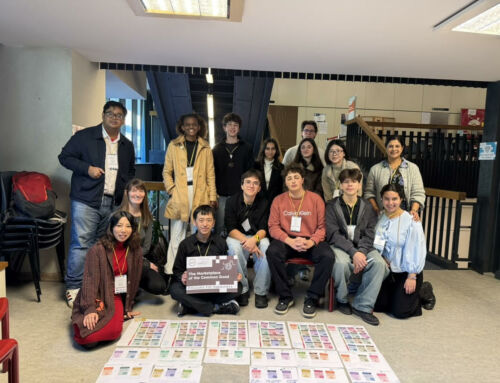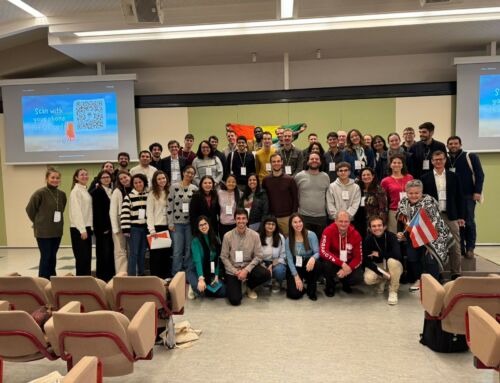
Elizabeth and ethical business for Big America
by Angela Napoletano, in Avvenire.
The young woman is among the participants in the Economy of Francesco. With the ‘Francesco Collaborative’ project, she promotes a supportive approach to business management through workshops and seminars.
Daughter of Detroit, a citizen of the world, expert in the economy of belonging. Elizabeth Garlow, 36, looks like this. She studied Spanish, political science and economics at Kalamazoo College, Michigan, which has been included in the prestigious US guide to ‘life-changing schools’ since 2012. In fact, she has had several relevant experiences, including consulting the White House during the presidency of Barack Obama for the initiative, ‘Promise Zones’, against poverty and unemployment. However, those that have transformed her more than any other are other elements: the birth of Sofia, the little girl born a few months ago, and the meeting with the Economy of Francesco community.

Joining the network of young entrepreneurs and academics who, at the request of Pope Francis, are studying solutions for a more sustainable economy and attentive to the last, she says, “has turned my life upside down because it has changed the trajectory that binds relationships to work”. Like motherhood. Elizabeth, born and raised in a Catholic family, is no stranger to issues that bring religion closer to finance (and vice versa). She has been exploring them since, years ago, she met the international movement of the Focolare, the ‘people born from the Gospel’ founded by Chiara Lubich in 1943. To the so-called Economy of Communion, an initiative that for thirty years has engaged its members in entrepreneurial projects and social justice in the world, she dedicated her thesis. Experience, she explains, “which convinced me to continue studies and work on what binds faith and spiritual traditions, especially Catholic, to the moral principles of the economy, an intersection in which policies and practices for a more just economy mature”. The letter announcing the launch of the Economy of Francesco, she recalls, “came in the midst of a small prayer meeting between young American professionals interested in the economic applications of the teachings of the Catholic Church.”
The decision to participate was almost a foregone conclusion. Member of the village dedicated to ‘Finance and Humanity’, the new American mother enthusiastically describes the analysis and discussion work she has had in recent months within the EoF global network and the importance of the discussion that continues today.
Before this experience, she explains, “I felt that my effort in favor of the solidarity economy was somewhat isolated”. Now it isn’t anymore. “There is a support network – she underlines – which makes a big difference”. On a personal and professional level. Perhaps the most tangible result of this path is the birth of ‘Francesco Collaborative’, a project directed together with Felipe Witchger, an investment expert, which promotes an ethical and supportive approach to business management in the industrial fabric of North America through workshops and seminars. The public that the initiative seeks to intercept, Elizabeth specifies, is represented by the ‘frontier entrepreneurs’, owners of companies that preside over the borderline between present and future, and who are therefore more inclined to imagine new forms of progress.
Human and economic. For individuals and communities. «We help them understand – she specifies – how the traditional concepts of business and management can be revisited in a practical, as well as theoretical way, in the light of the appeal to a solidarity economy. We encourage them to share investment opportunities, to look at decision-making as a group». “A huge challenge,” she admits. But she has no intention of running away. “For the sake of my daughter,” she specifies, and of future generations. «The currently dominant economic paradigm – she explains – can perpetuate inequalities and deeply tear the social fabric. In this context, it is extremely difficult for everyone, not just a few, to be well. Elizabeth is however optimistic: “change is possible”. As the experience of the Economy of Francesco teaches, “when you are confronted with authenticity and humility, it is really possible to change the course of life of others, to achieve what you work for”. not just some, are well “. Elizabeth is however optimistic: “change is possible”. As the experience of the Economy of Francesco teaches, “when you are confronted with authenticity and humility, it is really possible to change the course of life of others, to achieve what you work for”. not just some, are well “.
Elizabeth is however optimistic: “change is possible”. As the experience of the Economy of Francesco teaches, “when you are confronted with authenticity and humbleness it is really possible to change the course of life of others, to achieve what you work for”.










